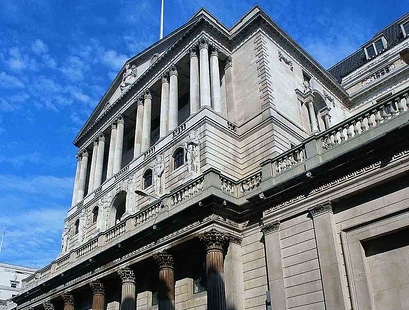The first change in interest rates in over seven years “looks almost certain” to be made this week by the Bank of England.
That is the view of Ben Brettell, senior economist at Hargreaves Lansdown, who expects the Bank Rate to drop from 0.5% to 0.25%.
The Monetary Policy Committee will make an announcement on Thursday.
It defied expectations last month, when commentators made the same prediction of a 0.25% fall.
Mr Brettell said: “It looks almost certain we will see the first change in UK interest rates in over seven years this week.
“Overnight Index Swap markets now show a 98.1% chance of a rate cut on Thursday – though it’s worth noting that markets been wrong-footed by the Bank of England before. The MPC’s decision had looked a bit more finely balanced, but since arch-hawk Martin Weale publically backed further stimulus last week a 25bps reduction has looked inevitable.
“It’s easy to see why a rate cut is on the table. Today’s manufacturing PMI figures are the latest illustration that Brexit has delivered a confidence shock. However, it’s still early days in terms of hard data. Surveys are driven by sentiment, and can therefore overreact. The dramatic fall in confidence may not ultimately be borne out by activity, and there is a case for a wait-and-see approach to monetary policy.”
Whether lower interest rates will work is “a moot point”, he said.
He said: “In many ways by talking about a rate cut the Bank has already achieved much of the intended effect, with the cost of borrowing (bond yields) falling across the board. However it’s difficult to see a cut moving the dial too far in the real economy.
“Money is already cheap, and while lower rates will reduce borrowing costs slightly, they aren’t going to significantly alter corporate or consumer behaviour.”
He sees little change in the long term.
He said: “I believe interest rates easily could stay where they are for five to ten years – and a return to ‘normal’ pre-crisis levels is impossible to foresee over any reasonable timeframe. With bond yields also flat on their back, and property suffering its own problems, the only game left in town is the stock market, though a long-term view is essential.”
Michael Hewson, chief market analyst at CMC Markets, said: “That the market is pricing this in as a 100% certainty is largely as a result of the expectations that have been built up in the aftermath of June's historic Brexit vote. In essence the central bank has boxed itself into a corner, and despite recent data should really be asking itself whether it would be wise to act at all this week.
“Martin Weale's flip-flop last month with respect to further stimulus, along with chief economist Andrew Haldane's recent sledgehammer comment, has raised the prospect that UK interest rates could head even lower, despite the fact that lending rates have already dropped sharply in the aftermath of the June vote.
“As a result of the current uncertainties – and given what’s at stake – it remains highly likely that Thursday's vote could be a split one, which means there is a fair chance that the Bank may well fail to deliver on market expectations.”

